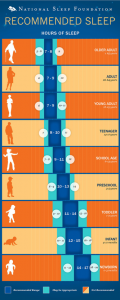There are many types of coffee beans in the market today, and the ones you buy can greatly impact your experience with drinking coffee.
Is coffee good for our health?
Coffee has both positive and negative health effects.
Health benefits of coffee:
- Can improve physical performance because it stimulates the central nervous system
- Can reduce the risk of cancer. A study done in 2012 concluded that people who drank 4-5 cups of coffee per day had 15% lower cancer risk rates.
- Coffee contains nutrients such as vitamin B, magnesium and potassium, which are all essential to maintaining our health.
Risks of coffee:
- Can cause insomnia due the easy stimulation of the central nervous system.
- Can raise blood pressure
- It is possible to overdose on caffeine, which can cause death in the worst cases
- Causes anxiety due to a mold toxin called Ochratoxin
Yes! Anxiety from coffee is due to a mold toxin and not caffeine itself!
Ochratoxin
Ochratoxin (OTA) is a mold toxin found on coffee beans.

Coffee beans with apparent mold due to fermentation.
Source: Kicking Horse Coffee Company Website, post by Maddie.
An important point to note is that this toxin will not reach high enough levels to have extremely negative health consequences (but don’t forget that overdose on coffee is possible, although that’s another discussion).
However, this toxin is the reason people feel anxious and jittery when drinking coffee, which is a huge discovery!
Why Does This Happen?
OTA is fermented quickly when coffee beans sit in water after they have been roasted. This forms chemicals that cause anxiety and rev up the nervous system. Clean coffee will not actually cause the jitters!
Ways to Prevent Anxiety and Jitters from Coffee
There are several proven ways to lower the overall anxiety we may feel after drinking coffee.
- Sip your coffee throughout your morning
- Drink with food
- Hydrate with water throughout the day
Watch this video to find more ways on making the most out of your coffee, and drinking it to gain the most benefits!
Source: Med School Insiders Youtube Channel
But most importantly, try and consume quality coffee from coffee shops that make their own coffee beans or from brands that are highly aware of preventing the formation of this toxin, like BulletProof coffee.

BulletProof coffee is a brand of coffee focused on avoiding mold toxins that cause anxiety. Source: BulletProof website.
If you would like to hear more about coffee and how you can have your favourite beverage without the added anxiety, listen to this interview with Dave Asprey, the creator of BulletProof coffee through the Stronger Podcast:
https://www.stitcher.com/podcast/stronger/e/57248484?autoplay=true
It is evident that coffee has its advances and disadvantages, just like anything else we consume. However, based on recent studies, most of the adverse effects can be avoided by moderate daily consumption of quality coffee. And in these cases, the advantages far outweigh the negative aspects!
So if you were concerned about having to give up your favourite beverage, this is completely unnecessary…but you can stick with tea if you prefer.
By: Sofia Savkovic


